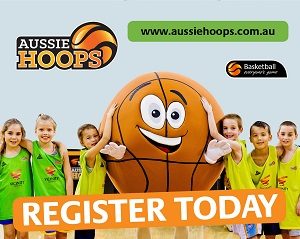Jarrod Moore is the Coach Development Manager with Basketball New South Wales and one of the leading coach educators in Australia. He recently attended the BA Performance Coach Course in Sydney and as part of this course, has shared some reflections from his coaching journey.
If we as coaches knew the right thing to say and do, every time, all the time, we’d all be master coaches. In reality, this art takes years of learning lessons through trial and error, conversations, observations, podcasts, interviews, and self-reflection (and many more experiences). A few months ago, I facilitated a 15 minute webinar for domestic basketball coaches with Wyndham Basketball (formerly Werribee Basketball) on the topic of “Key Thoughts When Coaching Kids”.
I’d like to expand on some of these lessons and ideas with you, and share them. These lessons have been drawn from 14 years of coaching at a Community, School, Domestic, Association, and State level, with players ranging from beginners to potential national representatives.
Make where you are, FUN! –
Enjoyment and passion for whatever you do, should be the root cause of everything, and it starts with you. As a coach, you are already having a significant impact on young lives with huge potential, and discovering your own ‘WHY?’ will further strengthen your passion for it.
It is a lot of fun teaching young athletes, because you never quite know where they may end up – they could be the next Lauren Jackson or Patty Mills. It is up to us as coaches to find, recruit and develop these young ‘diamonds in the rough’. Not everyone is going to find a career in basketball, and this is okay. What basketball will do is teach them the attitudes and behaviours necessary to achieve a fulfilling and meaningful life. A valuable lesson another coach taught me, ‘the grass isn’t always greener on the other side, it’s greener where you water it!’. There is great wisdom to be taken from this.
Make it enjoyable for your Athletes –
As coaches, no matter the level, junior athletes can be taught to enjoy the game, and the process of learning something new. How do you make something fun? Have you ever noticed what makes your players smile? A doyen of Victorian coaching – Marty Handson (rest in peace) walked past my practice one day (U12 Girls), stopped when we crossed paths, looked me in the eyes and said ‘Coach, the size of their smiles tells me everything about you as a coach!’. To this day, I am always trying to figure out different ways to balance competition and enjoyment in the process of teaching the game.
Will Weaver (former Head Coach of the Sydney Kings), once had his team play Handball (‘Downball’ if you’re Victorian) in training and the size of their smiles alongside their competitive nature turned it into the most fierce and enjoyable game I’ve ever seen. Enjoyment for the game never leaves one’s soul.
Reach for the Stars!
No matter the level: Aussie Hoops, Domestic basketball, Representative basketball, etc. We should always be encouraging our athletes to reach the next level and challenge themselves. For example, a coach of an Aussie Hoops program should be encouraging their kids to join a domestic team, domestic to representative, representative to state, and so on. Encouraging athletes to test the next level is not only encouraging them to seek challenge, but also learn valuable lessons in failure, dealing with adversity, identifying areas to improve and resilience.

Relationships – Connect!
Learning and remembering names can have a huge impact on a young athlete. Take the time to learn names and use them right away. The look on a junior athlete’s face when you recall their name for the first time is priceless. The emotions they will feel when you recall their name for the first time will be so impactful, you’ll be creating memories for a lifetime. A coach once taught me the lesson of targeting two different players each week to talk to before and after training. Using this method, she was able to build a connection and relationship with each player, within 6 weeks. You can do this with as many players as you like, and if you’re unsure what to talk about? Start with something outside of basketball.
Building Confidence –
Peter Lonergan shared this at a coaches clinic once: ‘Praise public, criticise privately!’ That quote couldn’t have been timed better in my own journey. It was used right away and I tripled down on the positives my teams and its individuals were doing. Everything from: showing resilience, urgency, curious questioning, supporting teammates, trying a new skill for the first time, etc. What I quickly discovered, the smiles and habits lasted longer and they started to become fearless on the court and in their learning. Confidence in skills grew with every repetition through the weeks, months and seasons.
A study on speed cameras and speed signs showed that people slowed down for longer (11 kms on average) when they were shown their speed on a sign, as opposed to a speed camera. Show your players the desired behaviours and attitudes, and these may last longer too.
Bring the E, E & E!
E, E & E stands for Energy, Enthusiasm and Encouragement. As coaches, we are sales women and men, and teachers of the game. Our passion for the game can be displayed through the energy we provide on the court, enthusiasm we contagiously give unto others and encouragement we provide them. We are trying to grow the number of basketball citizens in our game and a simple E, E & E can go a long way.
TEACH!
A mentor of mine once taught me that coaching is half art and half science. To learn the art of coaching, you will need to go through periods of trial and error and discover what works for you as a leader. My own eureka moments came when I was on the court, shoulder to shoulder with these master coaches at camps, workouts and training. Never hesitate to get involved, it could lead to your own eureka moments. Stay passionately curious!
You need Bad Days to realise your Good Days!
A parent once told me after a crippling loss: ‘You need bad days to realise your good days!’. As a young coach, this was the right combination of words to hear at that moment, and they have stuck with me since. There is nothing to be gained from dwelling on the result of yesterday, when you can focus on repairing it today, in preparation for tomorrow. Keep your head up coaches! You’re doing incredible things for your community and all those young lives.
Set your Boundaries from Day 1
Kids wouldn’t be kids if they didn’t push buttons and boundaries. They are very curious beings, trying to discover what’s out there in the world. As coaches, we mustn’t destroy their desire to be curious, but make them aware of things that are non-negotiables. For example, a coach taught me how to set some non-negotiable standards with a young group of athletes: ‘rule #1: no talking while i’m talking, rule #2: no bouncing balls while i’m talking’. Setting up these boundaries helped kids realise what was and wasn’t acceptable, as well as teaching them how to listen and learn. There is always one that pushes these buttons and a three strike rule can aid this situation (strike 1: reminder, 2: warning, and 3: sit out for 2 minutes).
K.I.S.S!
As a young coach and hearing multiple messages from many trusted sources, it is quite easy to overthink a solution. One of my mentors and a very dear friend, mentioned the acronym – ‘K.I.S.S’ after asking her a question. ‘K.I.S.S’, or Keep It Simple, Silly! Helps remind me (in moments of madness) to simplify the complicated. Master coaches and teachers have an uncanny ability to make the very complicated, very simple and learning to do this is an enjoyable exercise. Avoid reinventing the wheel and take ideas from other coaches that fit your philosophy.
There are further lessons to be learned as we continue to grow, and I look forward to sharing these with you in the near future.




Leave a Reply